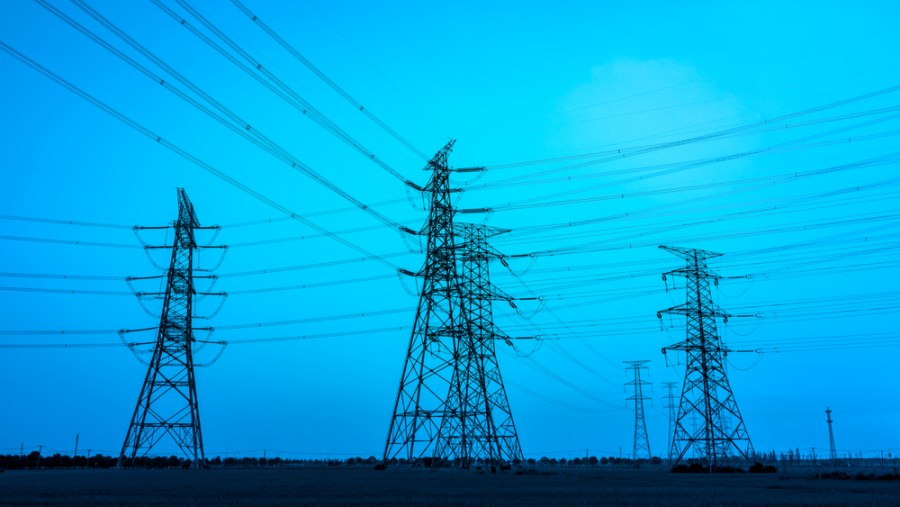The Modi government is being riven by dissension — and this time it is over the health of the state-owned power distribution companies.
Controversy within the government erupted over a fairly innocuous report that credit rating agency Icra put out in March that projected the discom losses at Rs 90,000 crore.
The ministry did not react to the Icra forecast until the Niti Aayog released a report on discoms, co-authored with energy think tank RMI, about a fortnight back which used the rating agency’s figures to buttress its argument that “most discoms incur vast losses every year, and the situation is only getting worse with every passing day”.
“A financial and operational turnaround of the discoms is urgent,” said the Niti Aayog report, adding “most power distribution companies ... incur losses every year —the total loss is estimated to be Rs 90,000 crore in FY 2021”.
In his preface to the report, Niti Aayog CEO Amitabh Kant wrote: “The distribution sector has been the Achilles’ heel of the power sector, consistently making large losses... We will not be able to achieve a high-growth, low-carbon economy unless the distribution sector achieves profitability.”
That is when the power ministry saw red.
In a detailed rebuttal on Wednesday, the ministry tore into the Icra projections saying that the discom losses had been “grossly inflated” and built on “flawed” assumptions.
Interestingly, the power ministry turned its guns against Icra — which made the projection based on information available at that time — and not the Niti Aayog whose report picked on that estimate to build a wider argument for reforms in the power sector.
When contacted, ministry officials declined to comment on the issue saying the statement speaks for itself.
Picking holes
The ministry note slams the Icra report for drawing untenable conclusions based on the decline in electricity volume sales in 2020-21 due to the Covid-19-induced lockdown.
It also pours scorn on Icra’s projection that discom dues to creditors between March and December 2020 had increased by Rs 30,000 crore. The ministry said this was a flawed assumption and based on premise that an increase in payables — attributable to a cash flow problem — would directly lead to a rise in discom losses.
The note also said that the Icra estimate of Rs 60,000 crore losses at discoms in 2019-20 was equally flawed and was actually half that figure.
“As a result of the erroneous projections by Icra, the loss figures of Rs 90,000 crore for FY2021 seem to be grossly inflated,” the ministry said.
The ministry also blamed the media for reporting the inflated discom loss figures, glossing over the fact that these had been made based on the Niti Aayog report.
The ministry note said that the electricity tariff regulatory system had a mechanism that “would allow the recoveries of losses arising due to change in consumer category-wise consumption patterns coming with Covid induced lockdowns”. It added that these losses would be recovered through tariffs “in the subsequent year”.
The ministry said Icra had alluded to this aspect in its report but such a “nuanced position” had not been reflected in the media reports.
Tariff hikes loom
The ministry’s statement now opens its own can of worms with the prospect of looming electricity tariff hikes.
Late tonight, Icra said its March report “does not anywhere say that the book losses for FY2021 are estimated at Rs. 90,000 crore.
The agency said it estimated net losses at PBT/PAT levels for FY2020 at about Rs. 56,000 crore.
The rating agency admitted that the discom losses might be lower depending on how much of the revenue losses the state electricity regulatory commissions (SERCs) allowed the discoms to claim “as a basis for future revenue and tariff determination under the cost-plus tariff principles” .
Any compensation granted by state governments by way of additional revenue support would also help them book lower losses, it added.
Under the scheme, which offers conditional financial assistance to discoms, thrust has been given in the areas such as annual determination of tariff, auditing of accounts and clearing subsidies and government dues in time.
The power secretary further said there is a need to have a consensus on better targeting of subsidies. “The tariff for domestic consumers will always be an issue of political debate. But there has to be consensus that we should have better targeting of subsidies. There is no case for giving any subsidy to a household who is running an air-conditioner,” he said.
He also said that there is a need to step up the current energy conservation programs to reduce the total projected carbon emissions by one billion tonnes by 2030.












